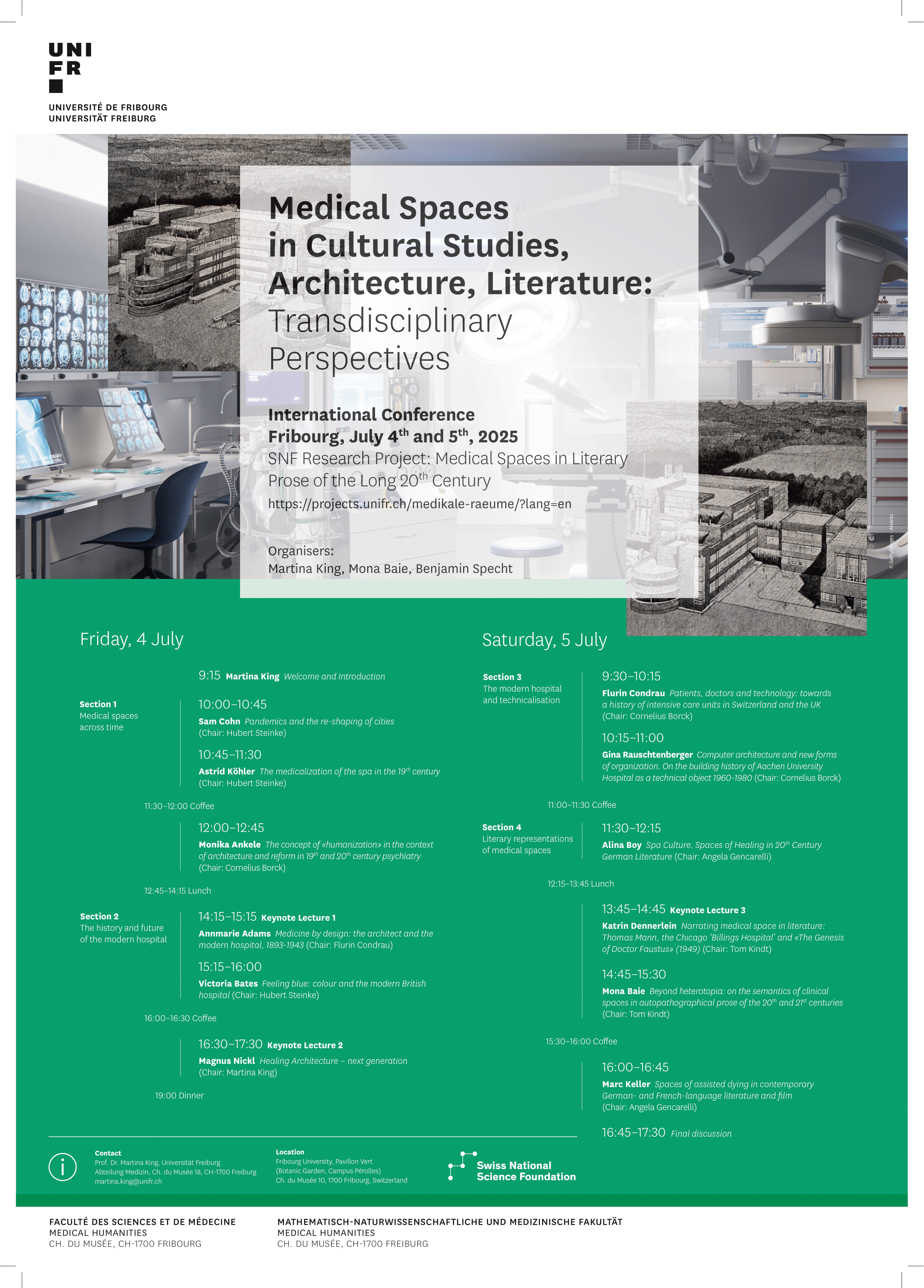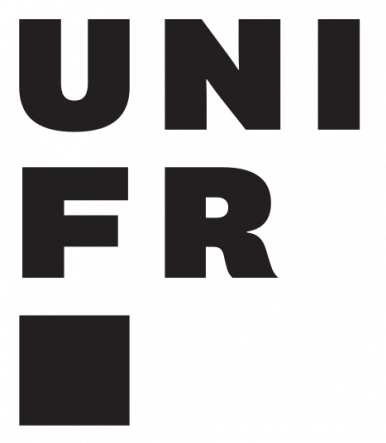Medical Spaces in Cultural Studies, Architecture, Literature: Transdisciplinary Perspectives
Mid-Term Conference
The conference 4th-5th July 2025 brings together historians of medicine and of architecture, scholars from spatial and literary studies and healthcare architects – in order to stimulate interdisciplinary discussion on medical spaces, their history, significance and social dynamics.
SNF-Project Medical Spaces in Literary Prose of the Long 20th Century
https://projects.unifr.ch/medikale-raeume/?lang=en
Chair of Medical Humanities, Fribourg University
Date and Place:
Friday 4th July – Saturday 5th July 2025, Fribourg University, Pavillon Vert (Botanic Garden, Campus Pérolles)
Organisation:
Martina King, Benjamin Specht, Mona Baie
Abstract
The ‘spatial turn’, a term first coined by Edward Soja in reference to Henri Lefebvre and Michel Foucault, has been enjoying a heyday in recent years. In its context, space is no longer conceived as a fixed, passive container for occurrences, people, objects; instead as a dynamic category that shapes or changes these phenomena while itself being continuously remodelled by groups of actors, institutions and cultural practices. Considering the current explosion of spatiality in a variety of disciplines such as history, sociology, anthropology, literature and media studies, one particularly puzzling absence makes itself felt: this is the medical space, or, to be precise, the multiplicity of medical spaces that have emerged over time. Medical space broadly speaking has shaped society and culture like hardly any other, is diversified like hardly any other and is, above all, exemplary for all those issues that concern the theorists of space: power relations, symbolic meanings, historical change, shaping of roles and practices, representations in literature and media. However, medical space or rather the diversity of medical spaces has not been systematically explored within the framework of the spatial turn. We intend to fill this research gap with our conference, dedicated to a multiplicity of medical spaces: from early-modern ‘epidemic’ urban spaces to the spa and the psychiatric asylum in the 19th century, from the hospital as a place for teaching and research in the 19th century to the specialist, technicized healing space of the 20th and 21th centuries. A particular concern is the modern hospital. We want to discuss its historical development, its aesthetic, sensory and functional qualities; how these aspects are related or controversial, how they are culturally represented, discussed in contemporary philosophy and, after all, turned into building practice by expert architects.


